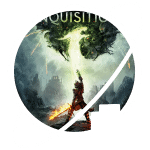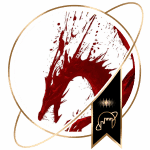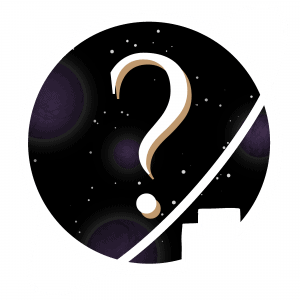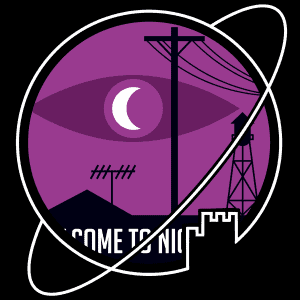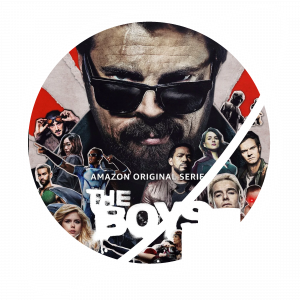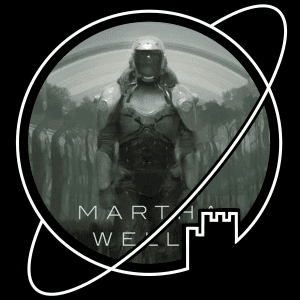- Video game developed by Bioware
- Published by Electronic Arts
- Released om October 31st, 2024
- Action Role-playing game
- Platforms: PC, Playstation 5, Xbox Series X/S
- Playing time: 40-80 hours
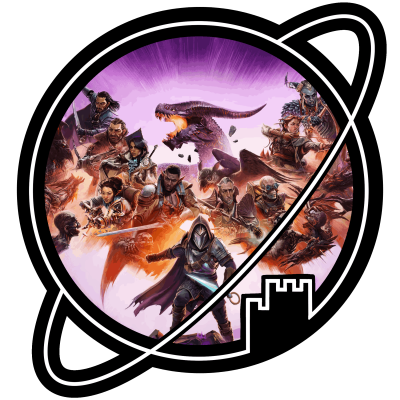

Dragon Age: The Veilguard was a long time coming. Ten long years, to be precise, with at times the very real possibility that it might never come again. And I was there during the whole wait, diligently checking the unofficial Bioware Social Network every day to see if there might be some news snippets (often finding nothing). This might seem a tad obsessive to some, but it’s the truth nonetheless. The Dragon Age games have always spoken to me on a deep personal level. Something in their DNA relates to me, something I haven’t really found in any other roleplaying games (not even Baldur’s Gate 3, even though I’ve enjoyed that game a LOT). What’s in their DNA, I hear you ask? Some thoughts I’ve lately had in regards to this – partially inspired by my spiritual care studies and some reflections by Dragon Age YouTuber Ghil Dirthalen – have led me to conclude that it might have to do with the emotional themes this series often touches upon and how they connect it to their lore and characters. Keep this in mind for later in this review.
Ten years. This is a long time to build a lot of expectations, especially if the end of Trespasser left enough of a mark on you. Dangerous things, expectations. They very easily lead to disappointments if you’re not careful. Luckily, Veilguard didn’t disappoint me. Was it different than what I had often dreamed up while I was waiting? Certainly. However, change is also very much part of Dragon Age’s essence for me. No game was ever like the one that came before it. Similarly, every game always circumvented my expectations of what the story would focus on. By now, I’ve come to expect to be surprised, my expectations challenged. And I can honestly say that (just like its prequels) Veilguard has managed to charm its way into my heart. I love it.
Before I dive too deep, let me preface the rest of my review by saying Veilguard isn’t perfect. Just like the games before it, there are thing that could have been better. For me, this pertains to some weird pacing at the start of the game – where characters also are prone to infodump worldbuilding in ways that lack elegance – as well as the rather abrupt ending. Although I’ll find a way to forgive Bioware for not planning for DLC’s for Veilguard, I really feel the game would benefit from a playable epilogue in which you can speak with your companions and allies just for a little bit. On the other hand, a decision I thought I would hate but ultimately didn’t mind too much, is the lack of choices from previous games that you can import. However, I do still hope that a next Dragon Age would find a way to include more.
In many ways, Veilguard seems the end of an era. Many lore mysteries are revealed – often confirming theories that fans had puzzled together years ago. In the case of the history of the Evanuris, the Old Gods, the Blight, the Fade and the Titans I was very excited to finally learn the answers. Furthermore, I very much liked how these answers were presented to us, through playable quests and flashbacks, memories to be thoroughly discussed with your companions and the occasional codex entry. Only in some cases, such as the lore surrounding the Forgotten Ones, I would have liked some more context. One critique I’ve seen online is that people felt the lore/worldbuilding of the earlier games was retconned. This is not a feeling I share. The lore of Dragon Age has always been presented in very subjective ways (yes, this also applies to you, Genitivi), resulting in somewhat of a challenge to try and extract what knowledge might be universally true. After recently replaying the other games, I recognised where the lore reveals built upon earlier (incompleted or warped) knowledge. I still love how these games present their worldbuilding, and I’d love to see where future games might take it next. The hooks that were presented in Veilguard (including the secret credits scene) have sparked my interest.
As for Veilguard’s writing, the plot of this game might be the most cohesive of the series yet. The protagonist, Rook, mirrors the history of one of Veilguard’s main antagonists, Solas. The overarching themes of regret and grief echo in multiple storylines and is at times deeply evoked in the choices we make and one particular plot twist that puts all that came before in Veilguard’s story in a new perspective. As mentioned earlier in this review, this is something that I can deeply appreciate. I really respect some of the writing choices that were made, though I understand they also came with controversy. Dragon Age: The Veilguard is also a story of putting aside differences to unite against a bigger threat. Moreso than in earlier games, this narrative is handled with a focus on radical hope and goodwill from all involved factions. As a result, some of the darker worldbuilding aspects of the setting are less visible than before, though we can still recognize them in environmental storytelling and codex entries.
Once again this Dragon Age installment contains some solid companions and NPC’s. Some of my personal favourites were Neve, Bellara and Taash. Unfortunately, just like in Dragon Age 2, we don’t have the ability to casually talk with them whenever we want to. Instead, they now ‘rotate’ around the player hub – a location I absolutely loved, by the way – and have conversations with eachother. At times, we can trigger cut scenes through which to know them better. Fitting for this game’s story, the companions form a very cohesive team and have little disagreements with eachother.
As can be deduced from the already insane length of this review, Dragon Age: The Veilguard is fresh on my mind. It’s something I have a lot of thoughts about. Still, to keep myself in check, I’ll share some of my remaining thoughts in manageable bullet points:
- The two main villains – Elgar’nan and Ghilan’nain – are delightful antagonists with an active presence in the narrative. They also have an intriguing dynamic.
- The combat system in this game is very different from the earlier Dragon Age games, less tactical and more fast paced. At first I was afraid I’d lack the gaming skills to enjoy this, but I quickly grew to love it (balanced difficulty) through my ranged rogue Rook. I don’t know if it’s also enjoyable on a easier or harder difficulty.
- I love how Dragon Age: The Veilguard gives you the opportunity to play as a transgender or non-binary character and I’m impressed by the reactivity the game presents to these options. This is very special. I haven’t encountered anything like this in other games and – though I hope the contrary will be true – I can’t imagine others will go to similar meaningful lengths.
- The level designs of this game are stunning. I was in awe with many of the set pieces. I especially liked the Crossroads, Rivain and Minrathous.
- Not all choices in Dragon Age: The Veilguard feel like they make very much impact. However, there are a lot of little choices you make that can have charming little consequences for background characters.
To conclude, I think Dragon Age: The Veilguard is a very solid Dragon Age game, one that I love just as much as the other Dragon Age games. I suspect it’s more friendly to new players than any Dragon Age Game until now, though I wonder if the amount of lore isn’t still very daunting. I also suspect returning fans might risk ambivalent feelings because of the legacy of the previous games and what they deem the most important traits of the Dragon Age franchise.

Like Jop, I’ve been eagerly awaiting this game for ten years. Unlike Jop, I was unfortunately NOT very excited with what we ended up getting.
Let me preface this review by saying that when you start disliking a game because of several small reason, eventually you start picking on everything. Sure, the previous games weren’t perfect either. Some of the things that started bothering me in Veilguard would probably have bothered me less if I found the game “good” overall. Out of Spite (because I actually know what Spite is, unlike some people apparently), I will be starting my review with some little things that bothered me:
- The music was bland an unmemorable. I only really remember the main theme. And why was it so electronic? This isn’t Mass Effect.
- What’s the point of having two gods when only one of them is designed well? Ghilan’nain’s design is absolutely stunning, and then there’s Elgar’nan? Who’s just some guy?
- Following up on that point, why does Mythal look like that??? Did they run out of character designers?
Tone
The tone of this game is one of my biggest issues. Previous Dragon Age games were relatively dark stories, featuring good comic relief and meaningful companion quests. All the games are relatively railroad-y, but you still felt like you got to think for yourself and make your own choices.
In Veilguard, you’re constantly taken by the hand and told what to do and what just happened (even if you were there to experience it). It’s like the game writers don’t expect you to understand the story. At a certain point a character was short with me because I hadn’t saved their home town. Instead of letting me interpret the dialogue with that character myself, the game gave me a pop up saying “X isn’t on great terms with you because you didn’t save their town”. It was obvious from the dialogue, don’t patronise me.
As many have already mentioned, the dialogue choices all feel the same. At a certain point I stopped caring what I chose, because none of my choices felt like they mattered. And my choices didn’t really matter, because everything even remotely controversial is stripped out. You can’t have a real discussion about anything. Rook’s just an enthousiastic yes-man who supports their companions in everything and never pushes back.
Rook doesn’t feel like a roleplayable character, but they’re also not distinct enough to feel like I’m playing an existing character. They’re just kinda there? Coming out of this game, I have no emotional connection to the character of Rook, despite loving all previous Dragon Age protagonists.
Characters/Romance
But who cares about the protagonist! The real stars of a Dragon Age game are the companions! Unfortunately, these were a very mixed bag for me. I really liked Bellara and Emmrich, but felt lukewarm about the rest.
I figured that at LEAST, Bioware would have made sure the romances were top tier. Unfortunately, I chose to romance Lucanis, who seemed the most interesting out of the bunch. An assassin who’s possessed by a demon? How can you mess that up? WELL, they did.
I’ve been disappointed by many men in life, but never quite as badly as I was disappointed by Lucanis.
His romance was deeply unsatisfying. Actually Lucanis was a boring character in general. His only real “thing” is that he liked coffee and unfortunately, liking coffee is not a personality trait. His “gimmick”, being possessed by a demon, had absolutely zero impact on the plot or his character arc (because he didn’t have one). WHY would they have him be possessed by a demon of spite and then never have him do anything spiteful? Like, is that just the least bad demon they could come up with? They’ve had a character be possessed by a demon before, and it actually impacted the game and the world that time! Why just rehash the same plot but do it badly?
To go back to the romace, there were very few romance-specific scenes with Lucanis. I think Rook and Lucanis kiss twice in the whole game? He never has anything to say to you. You can’t even break up with him (and I really wanted to).
Dragon Age
One big gripe I have with Veilguard, is that you encounter several locations that had a certain reputation in previous games but felt like regular places to be in this game. The Fade wasn’t anywhere near as scary and mystical as it was in Origins and Inquisition. Tevinter is supposed to be a country run by evil magisterium mages who oppress and even enslave people. In Veilguard, Tevinter was just… sort of Kirkwall but less charming? Years of build up just did not get paid off.
Many people speculate that Dragon Age: The Veilguard is meant to be a soft reboot of the series. However, I am unsure how it could serve as a soft reboot when there’s still so much lore that is confusing to new players. The inquisitor is there pretty often, and feels a lot more like a main character than Rook, because she actually KNOWS Solas. I accidentally made my inquisitor and Rook look very similar, which was confusing but mostly just super embarrassing because the inquisitor was present in quite a few important scenes.
Despite some lore from the last game being super relevant, a lot of worldbuilding is unceremoniously stripped away. For instance, why are no elves supporting the elven gods? (it’s actually because the elves are magically no longer oppressed in Veilguard)
While we’re at it: why is it called Veilguard? What was wrong with “Dreadwolf”? At least the name Dreadwolf is used regularly in the game. For the longest time I though the Veil jumpers (whatever they are, I’m still not sure) were the veilguard. I think the word gets used to refer to you and your merry band of boring friends maybe once at the end of the game.
Some of the Good Stuff
Somehow this game made me like Solas. Maybe because he’s the only character who seemed truly morally grey?
I didn’t like combat at first, but it really grew on me. I’m not a tactical player at all, so just getting to smash some buttons worked well for me. Mind you, I played the game on storyteller mode.
Bellara and Emmrich were really fun companions. Assan and Manfred were absolute highlights and being able to hug Assan and play rock paper scissors with Manfred was what got me through this game. I considered romancing Davrin purely to get more interaction with Assan (this is on brand for me as back in elementary school I used to befriend people entirely based on whether they had pets).
I really enjoyed the ending, especially the way Bellara featured in it because of the choices I made. I wish I’d felt like my choices mattered earlier in the game, but at least in the end stuff started feeling real. The final missions absolutely slap and finally have some meaningful impact. I actually cried twice during the final missions! At a certain point I thought Taash had died and I was actually relieved to find out they survived, which I wouldn’t have expected at all.
Overall, Dragon Age: The Veilguard won’t go above 2.5 stars for me. It would have been fine for a non-Dragon Age game (perhaps 3.5 stars?) but I don’t think it’s unrealistic to expect a certain level of quality after ten years. A level of quality that I personally couldn’t find in Dragon Age: The Veilguard. Luckily, I’m currently playing Baldur’s Gate 3, so I think I will recover.






